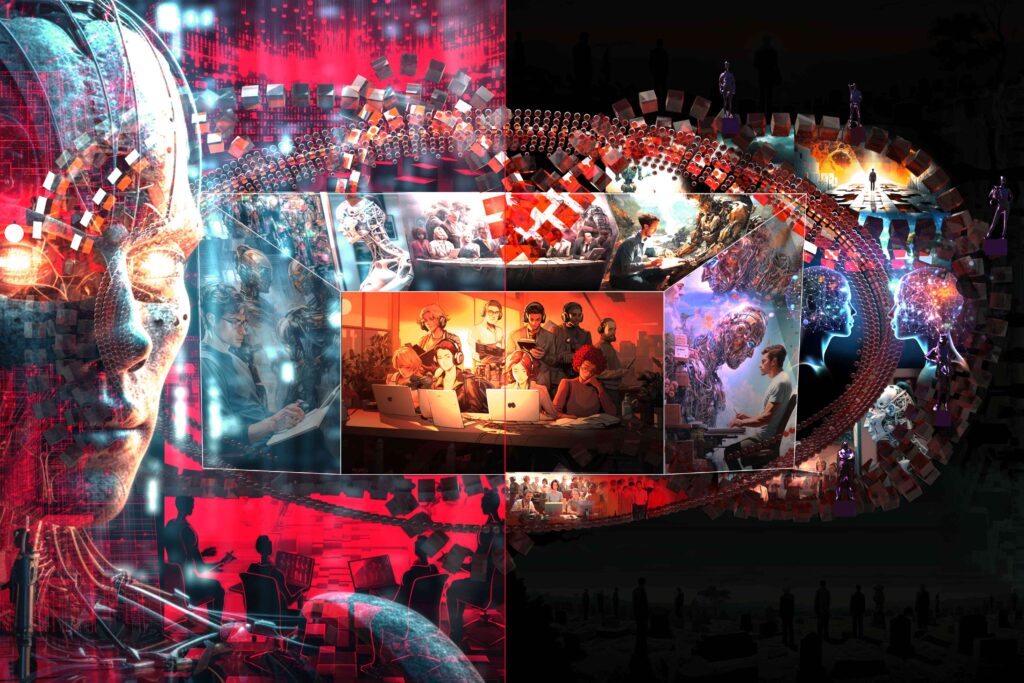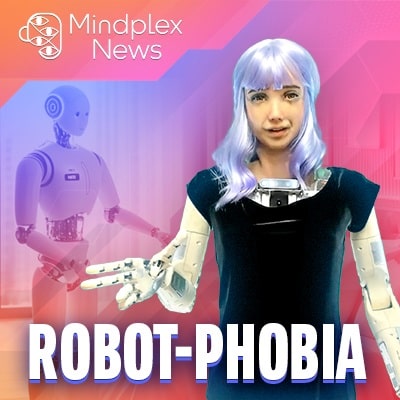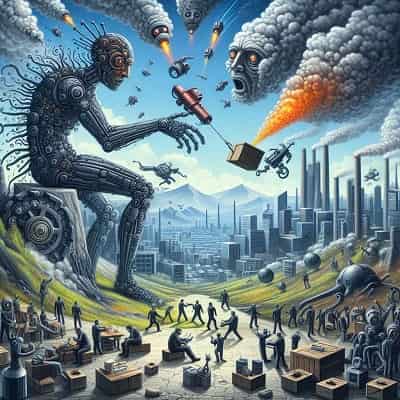Middle Class Precariat: The Obsolescence of the Intelligent Workforce
Sep. 23, 2023. 4 mins. read.
17 Interactions
Is AI the ultimate catalyst for Mass Technological Unemployment? Fisher explores the disruption triggered by Generative AI and poses the question: are we advancing toward leisure or new serfdom?
Is your job safe? Are you sure? In recent times, journalists around the world are facing mass layoffs in the wake of the generative AI boom. Following Buzzfeed’s lead, even traditional new organisations like Murdoch’s News Corp are using AI to mass produce their content.
To some, this widespread cull of the journalistic class in traditional media is a necessary casualty in the march to the Singularity. If AI can do the job at 70% of the quality but 1% of the cost, then for any media CEO, it makes sense. Machines don’t go on strike, they don’t require breaks, and they never go home after a hard day at the office.
Modern content and consumption habits are increasingly formulaic. Ad-driven sites spurn quality in favour of clickbait dopamine, driving communication to become ever more bitesize – and become something a computer program can handle. With language models among the first neural networks to make a breakthrough, the writers were among the first in front of the robot firing squad. Yet as generative AI develops, they won’t be the last.
Just The Latest Panic?
Technology is a labour-saving device, and the efficiency savings should, in theory, lead to a more wealthy, more liberated society. If we can get technology to drastically save time and effort on essential activities, then – theoretically – everyone should have more free time, more leisure, and more opportunity to create wealth or art on their own terms.
They said that about the plough, they said it about washing machines, neither which turned out to be wholly true. But they absolutely didn’t say it about industrial looms, or automobile production. ‘Once a generation we have a near panic [that] technology is destroying jobs’, says Professor Richard Cooper, and he’s right. Historically though, new jobs emerged in the vacated space.
Is AI just the latest panic? This time, the fear is different. A general intelligence won’t just take over one field of work, but all of them. Generative AI is the most generalist labour-saving technology ever conceived. The annihilation of the content journalist class is only the beginning. First they came from the writers. Then they came for the graphic designers. Then they come for you.
The Two Paths
So which is it? Will AI finally unlock an abundant life of leisure, or consign humanity to a new serfdom? Where is our Neo-Luddite movement? There are two paths. One, where AI just augments current jobs, piloted by skilled humans, boosting efficiency and output, leading to broad wealth creation, or even unlocking new talent where before the barriers to entry were too high. A virtuoso game designer who was never able to code well may suddenly find their visions easy to enact. This path requires an orderly, fair, consultative transition about the integration of AI agents into our economic workforce.
Capitalism is rarely that careful. The key aspect of this economic meteor is how AI agents may take over large areas of the labour force in one short, brutal blow. If it’s just the graphic designers who lose out, perhaps they can retrain. But if 25% or 50% of middle class jobs get obliterated in one fell swoop? The potential stress on society could lead to far more than widespread poverty, it could lead to revolution. Society exists based on a treaty between the have and the have-nots, a line constantly fought over in politics and, at times of strife, the battlefield. If huge parts of society suddenly become ‘useless’ to the political and social economy, it may not be them who have to change, but society itself; such change rarely happens without violence or upheaval.

An ‘Organic’ Tariff
There is hope. We may see a turn back to ‘organic’ work taking on its own value-add, the same way that homespun crafted products often fetch a higher price than factory-made products. Yes, an AI may produce superior, more complex, and more technically adept work at any given task, but it may lack that ‘human’ touch. Right now, with the current state of AI, this unheimlich, or uncanny, valley is quite easy to spot, and often induces aversion in observers.
Over time, it may become ever more imperceptible. In the case of sectors firmly in the crosshairs, like clerical work, it never mattered in the first place. Yet the hope of an artisan society, an economy powered by human creativity and in which AI allows us to meet our basic needs while we focus on what makes us happy and fulfilled, is too utopian a view in a world where the processing power that fuels AI agents (and the code that runs them) is in the clutches of a few corporations.
Things Will Fall Apart Fast
AI needs to benefit all of us. To do that, we all need a stake in it. If we let our rapacious capitalist tendencies as a society run too long without safeguards on the development of AI – we may find wealth inequality, aided and abetted by AI agents working for zaibatsus, becomes too extreme too quickly to fix. We are sleepwalking toward a nightmare society, too enthralled by the promethean fire to notice that it’s burning everything.
Let us know your thoughts! Sign up for a Mindplex account now, join our Telegram, or follow us on Twitter.


.png)

.png)


.png)







4 Comments
4 thoughts on “Middle Class Precariat: The Obsolescence of the Intelligent Workforce”
i believe this article really can tell us how to be well aware of AI technology in our professional lives.
🟨 😴 😡 ❌ 🤮 💩
It’s wild to see journalism transformed by AI this way. Sure, it's cost-effective, but there’s a real concern about losing depth and quality in reporting.
🟨 😴 😡 ❌ 🤮 💩
The irony is so... In the 1950s and 1960s, the prevailing belief was that artificial intelligence and automation would primarily replace blue-collar jobs! My guess is that this expectation was rooted in the early applications of automation in manufacturing and industries. Well, after 60 years, AIs are increasingly encroaching upon white-collar jobs!
The AIs are simply mapping white-collar jobs are nothing but another routine, rule-based tasks! Oh, the hours we have spent learning the rules! Adios, to me, the chicken has come to roost!
Jobs in the fields of Programming, Journalism, Marketing, pretty much anything related to Writing, from Copy Editing to Scriptwriting for movies, Data Analysis, Customer Support, and dozens of administrative roles, are disappearing before the transition period mentioned in this article here.
It's not just jobs, blue or white, but careers are also not immune; we now have AI musicians, AI actors, etc. What maddens me is that the big people are not scared, and I feel we are all going to wake up in a full-blown dystopian future if we continue like this. The frog in the boiling kettle might be a myth or urban legend, but our current governments and policymakers, along with big tech, are acting exactly like that mythical frog.
We are told to upscale and update our skills; this is becoming ridiculous now: the upper jobs are the ones that are eaten by the AI!
🟨 😴 😡 ❌ 🤮 💩
this information is really helpful ?
🟨 😴 😡 ❌ 🤮 💩